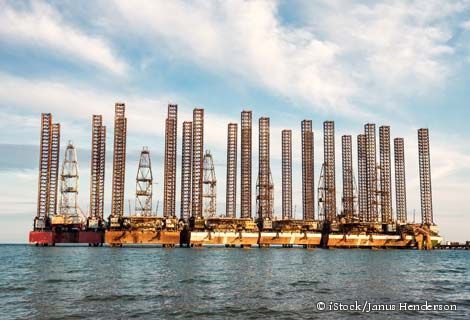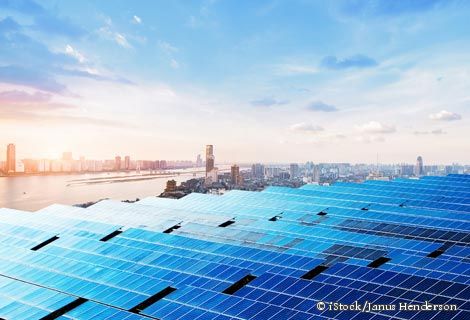
Janus Henderson: Global Sustainable Equity - news and opportunities

Hamish Chamberlayne, Portfolio Manager for Janus Henderson’s Global Sustainable Equity strategy, discusses recent developments affecting the world of Sustainable & Responsible Investment (SRI), and the strategy’s positioning, performance, and activity.
25.07.2018 | 09:26 Uhr
Global stock markets stuttered in the second quarter, with the MSCI World Index eking out small gains in US dollar terms (USD). Returns for non-USD denominated investors were better, however, because the dollar strengthened against most major currencies. Economic data remains largely positive, but it is important to remember that aggregate numbers conceal a more complex reality: some parts of the economy are growing strongly, while others are experiencing disruption. The volatile geopolitical environment also continues to weigh on investor sentiment; trade tensions have escalated between the US and the rest of the world and several Asian currencies and stock markets have seen sharp declines.
Solar projects power ahead
Energy was the best performing sector during the second quarter of 2018, as crude oil prices rose above US$70 per barrel for the first time in three years. While stronger economic growth has been an important factor behind market tightness, supply concerns arguably have played a greater role with US moves to reinstate sanctions on Iran and unstable production situations in Nigeria, Venezuela, and Libya.

Foto: Abandoned oil rigs
We do not believe that oil prices at these levels are sustainable: higher fossil fuel prices will only accelerate investment in clean technologies which, after five years of steep price declines, are now economically competitive without the need for subsidies. Indeed, investment in renewable energy shot up in 2017, with the world installing a record number of solar power projects, more than net additions of coal, gas, and nuclear plants*.
These are not healthy market conditions if one of your main businesses is providing turbines for large scale fossil and nuclear power plants. This has been a contributing factor to the nearly 60% decline in General Electric’s share price over the last two years. The transition to the low carbon economy is one of the key generational investment trends that we focus on, and we foresee many years of disruption within fossil related industries.
“Beautiful”: China’s vision for sustainable development
It is notable that China is now leading the way in clean technology investments, with the country accounting for around 45% of renewable energy investment and approaching 50% of global electric car sales in 2017. Last year, Chinese President Xi Jinping affirmed China’s commitment to sustainable development with the goal of creating a clean, green and “beautiful China”, with higher living standards and healthy ecosystems. We think China’s determination, and the pace of change, will catch people by surprise.

Foto: Nanchang, China.
There is still a long way to go, however. According to a recent study, in 2017 renewables only accounted for 12.1% of worldwide electricity generation, while electric car sales of 1.1 million represented less than 2% of total car sales. Meanwhile, the atmospheric concentration of carbon dioxide has marched steadily upwards, increasing by 2.3 parts per million (ppm) to reach 406.5ppm last year. Last year was the second warmest on record, behind only 2016’s record 0.99 degrees Celsius above the 1951-80 average*.
FAANGs in focus
Large market capitalisation internet stocks saw strong price increases over the second quarter. In fact, a notable proportion of the total market-weighted return of the MSCI World Index was attributable to just five stocks: Facebook, Amazon, Apple, Netflix and Alphabet’s Google (the so-called ‘FAANG stocks’). With the exception of Apple, these companies continue to record strong growth. None of them are owned in our Global Sustainable Equity Strategy and this has represented a headwind to relative performance.A core tenet of our investment philosophy is a belief that the most sustainable long-term investment returns will be generated by companies that are providing goods and services of benefit to the environment and society. While there are many aspects to these companies that we admire, we also think there are some underappreciated negative externalities associated with them. Regulation remains a significant threat and there are also risks surrounding their supply chains and potentially changing consumer attitudes towards data privacy.
Key contributors to performance
Adobe (Knowledge and Technology theme) continued to perform strongly after reporting another set of results that exceeded expectations. The transition to a recurring cloud-based subscription model is progressing smoothly and long-term earnings power continues to increase. Adobe inventions are helping to drive the creation of ideas and exchange of information, presenting new ways of solving social and environmental problems. Education is one of Adobe’s largest end markets; also the shift to digital media enables customers to reduce waste and save natural resources.
Wabtec (Sustainable Transport theme) is one of the world’s largest providers of air brakes and electronic controls for the rail industry. The stock rose after it announced a plan to merge with General Electric’s (GE) rail transportation business, which manufactures and services locomotives. We view this as a very complementary deal, combining Wabtec’s freight and transit components business with GE Transportation’s locomotive manufacturing and service business. This combination should create a diversified global leader in railway transportation and logistics. Public transit is experiencing long-term growth driven by increased urbanisation, while freight by rail is more environmentally friendly than trucking in the US. The rail industry is focusing on improving safety and efficiency.
Encompass Health (Health theme), a leading provider of post-acute care in the US, continued its solid run after reporting another set of results that exceeded expectations, demonstrating good growth in both the Inpatient Rehabilitation Facilities and the Home Health and Hospice segments. In the first quarter we had reduced our position to a size that takes into account the potential risk of a change to government rebates. Encompass appears well-positioned to benefit from an ageing demographic pressuring US healthcare costs, because its inpatient rehabilitation centres and home care services offer a cost advantage over senior nursing facilities.
Key detractors from performance
Leopalace21 (Sustainable Property & Finance theme), the Japanese company that builds and leases low cost housing and residential care homes, declined after the company announced the presence of building defects in some of the older properties in its portfolio. The defects are minor in nature and we believe the decline in the share price is excessive. Leopalace21 has policies to minimise the environmental impact of its buildings by installing rooftop solar and LED lighting and its properties are favoured by both corporate tenants and students.
Omron (Efficiency theme), the Japanese manufacturer of sensing and control technology, declined sharply in June along with many other robotics and factory automation related companies. Industry level shipment data in Japan is indicating a slowdown in orders and this has come at the same time as escalating US-China trade disputes, which could have a negative impact on the pace of investment in factory automation. We believe any cyclical slowdown will prove temporary and Omron should benefit from the investments it has been making to strengthen its products and market positioning. Factory automation is a multi-year secular trend and Omron is one of the few companies with a fully integrated and solution-focused product offering.
AMS (Knowledge & Technology theme), the European analog semiconductor company that specialises in optics and proximity sensors fell following disappointing first quarter results. The company was impacted by disruption surrounding the likely discontinuation of the iPhone X, where AMS provides facial recognition technology. While we like the long-term opportunity for AMS, we reduced our position due to greater near-term uncertainty. Despite this setback, AMS is seeing higher levels of demand from a number of different customers and end markets. Its technology is used in facial recognition in smart phones as well as an increasing number of industrial, automotive and medical applications. It is a key enabler of computer vision which is having a transformative impact on technological capability, efficiency, and security in these aforementioned sectors.
Activity and positioning
Our positioning remains skewed towards our Knowledge & Technology and Efficiency themes, which account for the large allocation towards the information technology and industrial sectors versus the index. We remain underweight the energy, consumer staple and financial sectors and regional weighting remains in line with the MSCI World benchmark. During the second quarter, a new position was initiated in Intact Financial, the leading property and casualty insurer in Canada. RELX was the only divestment. We also made some modest adjustments to existing holdings, using share price weakness to add to some positions (Hubbell, Schneider, Evoqua Water Technology and ING) and trimming some positions where share price strength had resulted in extended near term valuations (Nike, Kingspan, Xylem). Discover more about our favoured stocks in our Positive Impact Stocks document. Our mid-year outlook is also now available to read.
*Source: UN Environment, the Frankfurt School-UNEP Collaborating Centre, and Bloomberg New Energy Finance, ‘Global Trends in Renewable Energy Investment 2018’.



Diesen Beitrag teilen: